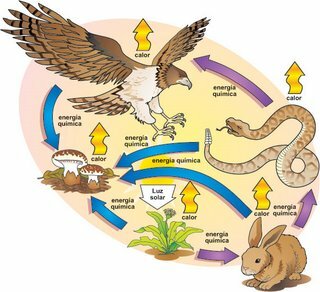Bulimia Characteristics
Psychology / / July 04, 2021
Bulimia nervosa or simply bulimia, is an eating and mental disorder, with tendencies self-destructive in terms of food intake and subsequent expulsion, as well as other symptoms that accompany her.
In this disorder, the person consumes excessively large amounts of food in short periods, the food eaten being abruptly and artificially eliminated, either in the form of vomiting or through the use of laxatives, which is caused by a pathological fear of gaining weight and body mass, on the part of those who suffer from this psychological disorder, affecting the perception that the person has of himself, even reaching that, when observing himself in a mirror or in photographs, his mind distorts his own image, making the person see himself herself with greater body mass (obesity), without this being the case in reality, even going so far as to distort her own image in a grotesque way by exaggerating the supposed physical features that they think they have.
This disorder is among the so-called eating disorders, (according to the world health organization), which includes other eating and psychological disorders such as anorexia, vigorexia and depressive-compulsive disorders, which are closely related to each other, commonly occurring together with each other in the same person.

Some of the Characteristics of Bulimia:
Causes.- Although the causes are not yet well determined, the main cause of this psychological illness is that this behavior is a consequence of social pressure, especially pressure that are exercised by schoolmates, or friends, who on multiple occasions call people fat or fat, even when that is not really the case, but they hurt the self-esteem of the person, who tries to be accepted by creating an idealized body, similar to that seen in magazines, television advertisements, the internet and various media, (who promote on a large scale the false ideal of the "perfect body" using artists with stylized bodies in fashion and beauty advertisements), which encourages these psychological-eating disorders, causing patients to exaggerate diets, exercise excessively, or induce frequent vomiting, to prevent food from “making them fat,” as their mind would have them believe, and lowering so heavy.
It also seems that this disorder is used as a kind of escape route from reality in the one that is lived, being more common in the passage from childhood to adulthood, that is, during adolescence. It is believed that the disorder arises to escape from the family, social or school reality, focusing his frustrations in a self-destructive way against his body by depriving themselves of food, and creating a false sense of liberation by getting rid of food (via vomiting or through the use of laxatives).
This disorder is frequently accompanied by others, such as anorexia, vigorexia, depression and various manias, as well as causes diseases and disorders health, such as malnutrition, fatigue, multiple organic damage (especially loss of necessary substances such as vitamins and minerals), decalcification, hormonal problems, sterility, chronic fatigue, sleep disorders, cavities, decreased immune defenses, and some psychological problems such as very marked mood swings, such as recurrent bouts of anger or depression, obsessions (for example, obsession with counting calories from food,), and in some cases some paranoia, (they believe that everyone talks behind their back about their supposed obesity, or that they are watched permanently, etc. Coming to compromise both mental and physical health, causing systemic damage and death.
His life revolves around food.In people who suffer from this disorder, the central point of their life revolves around food, both in the excessive and compulsive eating that they make of it. ("Binge eating"), as in the systematic way they use to get rid of it once it was ingested, causing vomiting and forced evacuations using laxatives and diuretics
Binge eating. One of the main characteristics of this disorder is the excessive and impulsive intake of food that is subsequently expelled from the body, without allowing the absorption of nutrients. People with this disorder tend to eat large amounts of food during attacks or attacks of bulimia being eliminated the food immediately either through the provoked vomiting or through the use of laxatives.
Intentional vomiting. The most notable characteristic of this disorder is that those who suffer from it deliberately induce vomiting so that the food does not get to be digested and absorbed, this they do so that food is not assimilated by the body and therefore the body does not acquire the nutrients and substances contained in the food, so that in this way the body uses the food reserves it has and thus reduce weight and body mass, but this action both short, medium and long-term, causes conditions and ailments, such as a lack of vitamins, minerals and nutrients that are not absorbed, as the body does not feed itself and only consume its reserves, which eventually causes the body to consume its own tissues, resulting in the death of tissues and organs, as well as the death of person.
Other consequences of deliberate vomiting are dehydration by constantly losing fluids, decalcification of the bones, loss of enamel dental and loss of sensation in the palate as well as burns in the throat due to the excessive passage of hydrochloric acid through the mouth mixed with the threw up.
Constant use of laxatives. Another way they use to lose weight is through the use of laxatives, which they use to that the body cannot absorb food, in addition to contributing to dehydration of the Body.
Extreme diets.- It is common for people affected by this disorder to make use of diets extremely low in calories and other essential nutrients for life. These types of diets are usually made up of very low amounts of food, and flatly discarding meat foods (meats, fish, egg, milk and derivatives), which are precisely those that your body needs most for its development during childhood and adolescence.
In this regard, it should be noted that, statistically, a large part of those who suffer from bulimia, anorexia and vigorexia, begin by changing their normal diet to a vegetarian diet.
Vigorexia. Among the ways they use to reduce the few calories they eat, is through excessive exercise (vigorexia), getting to exercise until they are exhausted, this not only uses up the reserves that the body has to preserve life, but also atrophies the muscles since when exercising and not finding the necessary vitamin, mineral, protein and fat supplies, the muscle consumes nutrients from the same body (from the same muscles), reducing the mass muscular. Also dehydration that accompanies exaggerated exercise decreases the water contained in the body and to compensate for this loss, the body extracts water from the muscles.
Self Aggression. Often these abnormal behaviors are conscious or unconscious self-harm, which is done on them. They also use this self-harm hurting their body by allowing them to feed, expelling food through vomiting or using laxatives, as a kind of punishment, every time they do not achieve some objectives, for example a patient proposes to lose from 40 kilos to 35 kilos and if he does not achieve it, he punishes himself in this way, making his disease worse, another example is when by not meeting any goal, (school, social, work, etc.), they infringe upon themselves a punishment such as exercising excessively, or following an exaggerated diet poor.
Another facet of self-injury occurs in some cases in which in addition to food deprivation or excessive exercise, they punish themselves by hurting themselves by hitting, or insulting and belittling themselves, which leads to depression, even damaging themselves such as cutting their wrists and attempting to commit suicide and in many cases consuming the suicide.
Distorted image of himself. People who suffer from this disorder tend to distort the image of themselves, regardless of their size, weight, and body mass, in their mind every time they observe themselves they see an image deformed in which they are obese, without actually being so physically, and even in serious states where the patient's bones are visible to the naked eye, their mind is disturbed It leads them to believe that the folds of the skin or the bones themselves (which for another person are fully visible and obvious), were layers of oily skin, (the so-called "tires" "chubby").
Among the distorted vision of himself, on several occasions (in women), there is the case of denying his own femininity in a certain way, this goes hand in hand to the frequent loss of reproductive capacity (sterility), due to irreversible damage to the reproductive system, as well as the reduction partial or complete breasts, losing the natural feminine forms of the body, in favor of an androgynous and disfigured body with appearance cadaverous.
Reduction of cognitive capacity.- As a consequence of the malnutrition that it causes by not allowing the entry of nutrients into the body and by the overexertion to which they subject the body, together with the dehydration caused by the frequency of vomiting, there are affectations in several organs and between the organs that are seen deprived of necessary nutrients (especially water and essential fats) is the brain, the lack of calories and nutrients, as well as In extreme cases, there is a decrease in the "rhythm of thought" and even a reduction in head mass, mainly caused by the dehydration
Mental and emotional conditions.- This mental illness directly affects the mood of the person, there is a distortion of reality on the part of the person suffering from it, especially in relation to the image of their own body, which is distorted, the person sees himself in an obese way, regardless of the real state of her body and this leads to the rejection of the food.
Another emotional facet of this disorder is that people who suffer from it tend to be depressed, which is exacerbates as you continue to deprive your body of the nutrients that it would normally get from food.
There are also various compulsive obsessions that accompany bulimia, such as the obsession to count all foods, (amount, weight and calories of the same), this in reference to the strict diets that are self-imposed, as well as in some cases of exaggerated cleaning tending to hide the traces of having vomited. Another of the psychological phenomena that occur in this mental illness are the manic-depressive attacks that they usually have, frequently reaching verbal or violent violence. physical, especially when in some conversation topics related to the food itself, their eating habits or their physical appearance are touched, and sometimes they even think that those around them, (family, friends, doctors, etc.), conspire against them and that people talk at all hours about the supposed fat that these patients imagine to have.
Infantilism.- Among the psychological disorders that are observed in people with this condition, in most cases they present a certain level of infantilism, in the sense that they seek in a certain way to remain "eternally children", or "eternally adolescent", taking childhood skills and even dressing in a childish way in certain cases, trying to evade the reality in which they live, and avoiding facing the problems that already arise in the Adult stage. This facet is sometimes encouraged by parents or close associates, who usually consent to such behaviors.
They tend to deceive and act so that their condition is not discovered. People affected by this disorder, as well as those suffering from anorexia nervosa and vigorexia, tend to try to deceive others (doctors, psychiatrists and relatives) by dressing wearing loose or excessive clothing to hide their thinness, as well as when they vomit generating noise to somehow hide the action of vomiting, either by opening water taps or showers, playing loud music while vomiting or vomiting while pulling the toilet lever so that the sound disguises the noise they make when expelling food, (this is do especially when they enter treatment and are constantly monitored), and even manage to deceive doctors and family members, acting as if they are progressing in their cure, even to eat well for a while, while they are under medical or psychiatric observation, inside specialized clinics, waiting to be discharged and then continue with their habits self-destructive.
Feeling of guilt after eating. These people feel a kind of "guilt", having eaten food, as if eating food was a bad thing, when it is not. Even these types of patients set "goals" to lose weight by forcing themselves to vomit or take laxatives one or more times a day. day, and if for some reason they do not get to do it in a day they infringe a kind of "punishments" or a "compensation" for not having laxed or vomited, either through more frequent vomiting, excessive exercise (vigorexia), or rigorous and exaggerated diets, (anorexy).
It mainly affects women.Although it affects men more and more frequently (mainly adolescents), this disorder is more common in women, being more than 95 percent of the cases. Usually starting in adolescence, although currently there are cases in which the age range decreases, being currently ages between 8 and 12 years when these psychological-eating disorders begin to occur in the women.
Sociocultural pressure.- The new standards of fashion exhibited and exploited by magazines, movies, television, the internet and other visual media, have created an idealized "standard of beauty", anatomically outside of human nature, displayed on magazine covers, or on television at models (men and women), with stylized bodies, which young people (mainly girls and adolescents) take as models of beauty. Regarding clothing companies and firms, they have contributed to the expansion of this and other psychological and eating disorders, not only by inducing youth to desire that ideal of standardized beauty, (slim, very slender and stylized bodies), but even most of the most prestigious clothing brands, only make clothes smaller than what really have human bodies by nature, causing people to change the nature of their body to conform to the vagaries of fashion, affecting health and putting in I risk my life.



